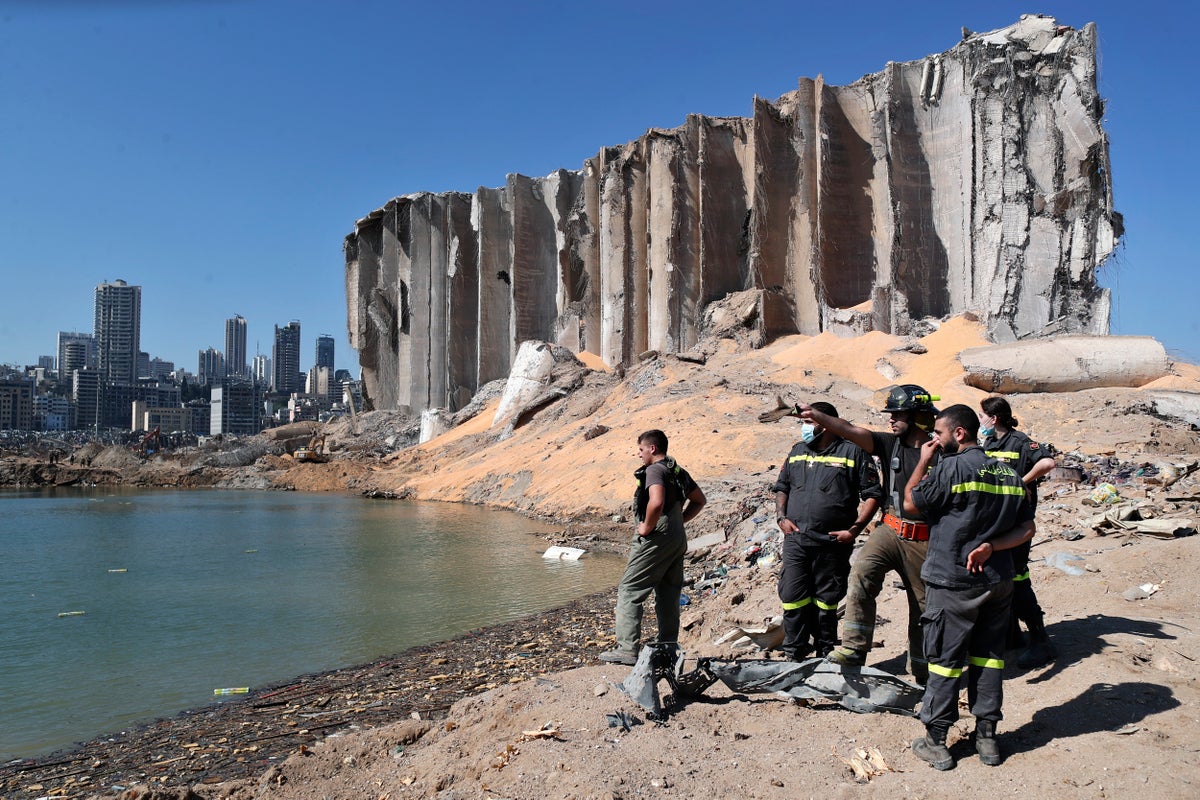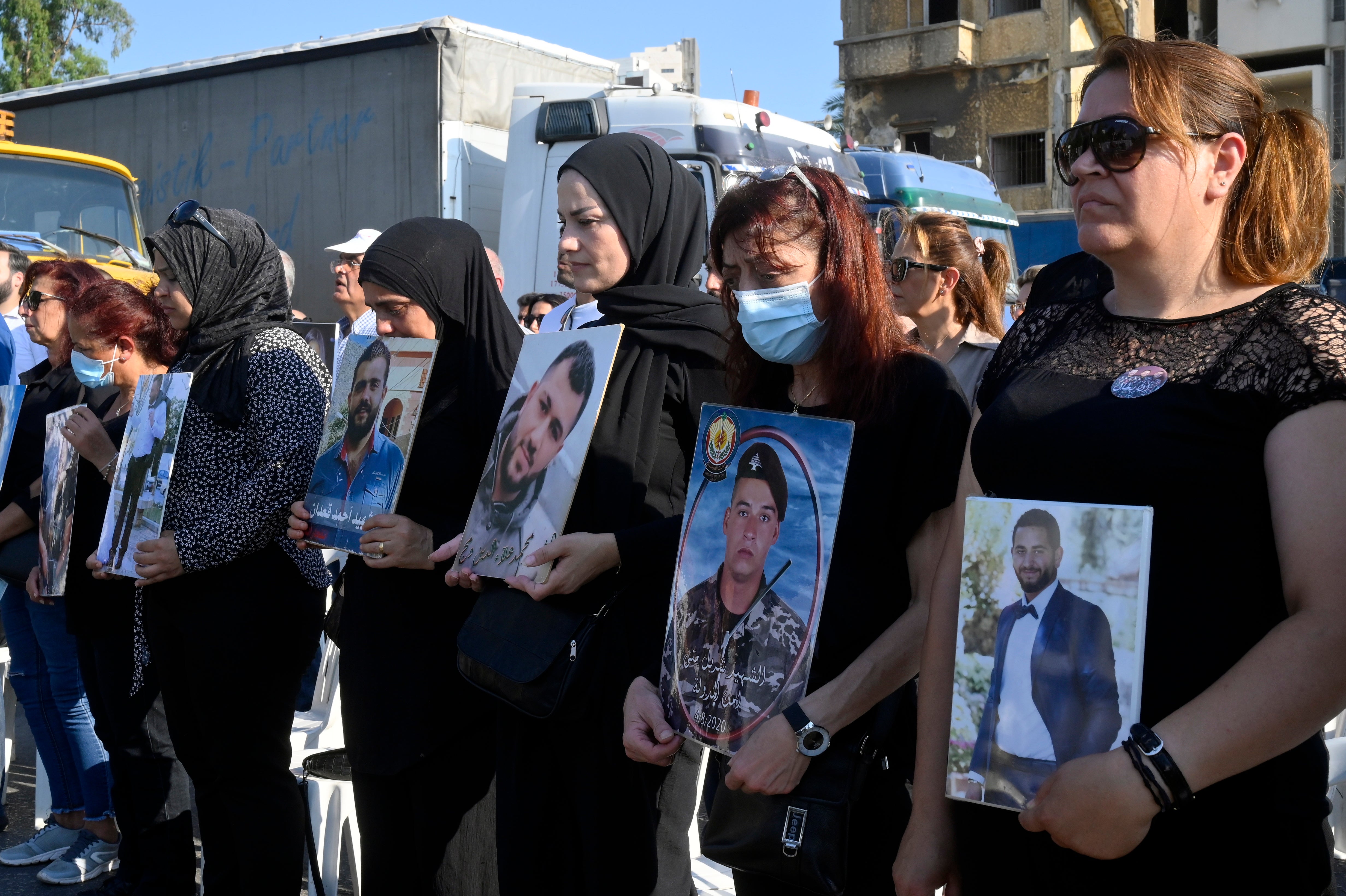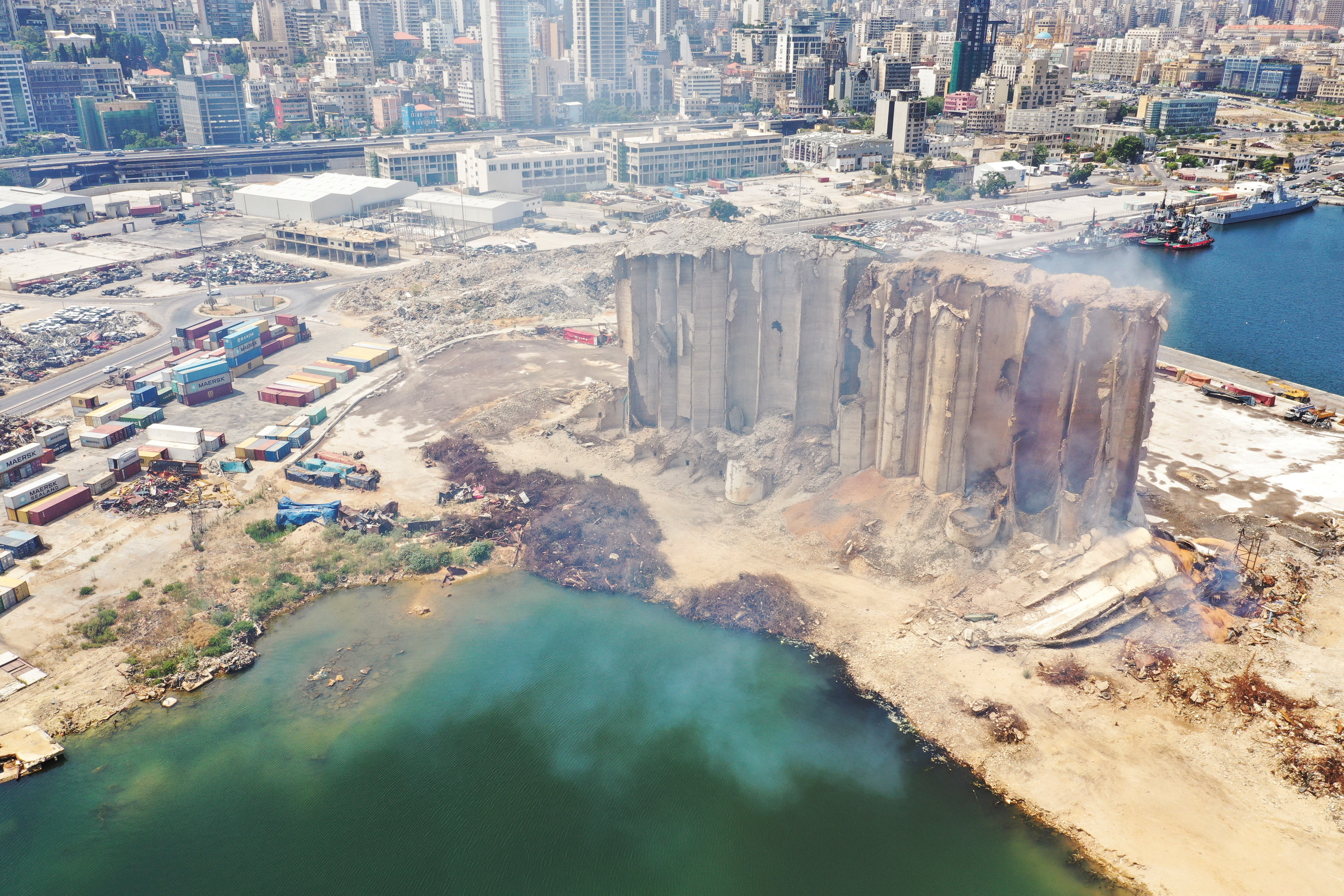
Rights groups, together with survivors and families of victims of Lebanon’s 2020 port blast, have urged the United Nations to immediately dispatch an independent fact-finding mission to Beirut, accusing the country’s government of “brazenly” obstructing a probe two years on from the explosion.
At least 215 people were killed, and 6,000 injured when, on 4 August that year, several thousand tonnes of poorly stored explosive materials detonated in the capital’s port, in one of the largest non-nuclear explosions in modern history.
No one has been held responsible and an investigation into the causes has stalled.
On the eve of the anniversary, several rights groups including Human Rights Watch, Amnesty International, Legal Action Worldwide and the International Commission of Jurists together with survivors and families of the victims have accused the Lebanese authorities of “brazenly” blocking the probe by shielding politicians and officials who have been implicated.
They urged the UN Human Rights Council to put forward a resolution at the upcoming council session next month that would dispatch “without delay” an independent and impartial fact-finding mission.
“The mission should establish the facts and circumstances, including the root causes, of the explosion,“ the statement read.
“It is now, more than ever, clear that the domestic investigation cannot deliver justice,” the statement added.
Paul Naggear, whose three-year-old daughter Alexandra was among the youngest victims, told The Independent that a new UN fact-finding mission is one of the chief calls expected from protesters during planned demonstrations in Beirut on Thursday.
“The fact that it has been two years is awful. Time doesn’t heal. The pain is worsening in the absence of justice or truth or anything,” he said.
“Justice in Lebanon is dead in our eyes, there is no such thing as justice here,” he added.
It followed comments by Pope Francis who used his weekly general audience on Wednesday to pray for the families of the victims, warning the truth cannot be concealed.
“I pray that each one may be consoled by faith, and comforted by justice and truth that can never be hidden," he said.

Multiple protests have been called to mark the two-year anniversary as those impacted by the explosion demand justice.
Attempts to find the truth of what happened have repeatedly stalled.
This is despite a damning paper trail showing that senior officials from the port authorities right up to the president knew about the deadly stockpile of ammonium nitrate behind the explosion, but did nothing about it.
Originally Lebanon’s justice minister appointed judge Fadi Sawan head investigator and he charged three ex-ministers and the then prime minister with negligence in December 2020.
However, a court removed him from the case a few months later after two of the ex-ministers complained he had overstepped his powers. Judge Tarek Bitar was then appointed to replace Sawan, but his attempts to interrogate senior figures including former ministers as well as Major-General Abbas Ibrahim, head of the powerful General Security agency, all failed.
All have denied wrongdoing and resisted arrest, arguing they have immunity or that he lacks authority to prosecute them.
Human Rights Watch says suspects have simultaneously swamped courts last year with more than two dozen legal cases seeking Bitar’s removal over alleged bias and “grave mistakes”, leading to several suspensions of the investigation.
The probe was finally shelved in early 2022 due to the retirement of judges from a court that must rule on several complaints against Bitar before he can continue.
The finance minister – who is backed by Lebanon’s parliament speaker Nabih Berri – has held off signing a decree appointing new judges, citing concerns with sectarian issues.
This has completely stalled any attempts to go forward with the case, according to Farouk el-Moghraby, one of several lawyers representing those badly injured in the blast or family members of the dead.
He told The Independent that they are trying to petition parliament to amend civil procedures which allow investigations to be automatically halted when a complaint is submitted against the judge in question. They also want to increase fines incurred by individuals who do so “in bad faith” to deter politicians from taking this route.
He said they were also hoping to encourage the finance minister to appoint a new head of the court of cassation so the existing complaints, holding up the probe, can at last be heard.
“I have to remain hopeful that there will be justice. All of us have been wounded by this explosion, they destroyed the country. We cannot deal with this Lebanese-style, it is too huge,” El-Moghraby said.
“If we keep fighting we have a chance at justice. If we lose our hope there will be no chance. We don’t have another choice, we can only fight,” he added.
There are fresh concerns for Beirut as the capital’s grain silos, which were badly damaged by the explosion, have been on fire for three weeks due to the fermenting grain still trapped inside. This week several of them began collapsing, sending toxic dust into the surrounding areas.

On Wednesday firefighters received another warning that another two of the silos on the north side would imminently fall down. Residents in the surrounding areas have been told to wear masks when outside.
Lt Michel el-Murr, a fire department chief, who lost 10 members of his team in the explosion, said the grain silo was still on fire but because of new warnings of collapse, it was too dangerous for his teams to battle the blazes.
He said it was impossible to describe the feeling of sadness at the lack of justice.
“The investigation is blocked and we are still waiting to see what the result will be. We cannot do anything as firefighters, we do our job and our work,’ he told The Independent.
“I’m devastated because I want to know what happened and why my colleagues, my brothers and sister were killed and what for?”
“The sadness in my heart I cannot express properly.”







